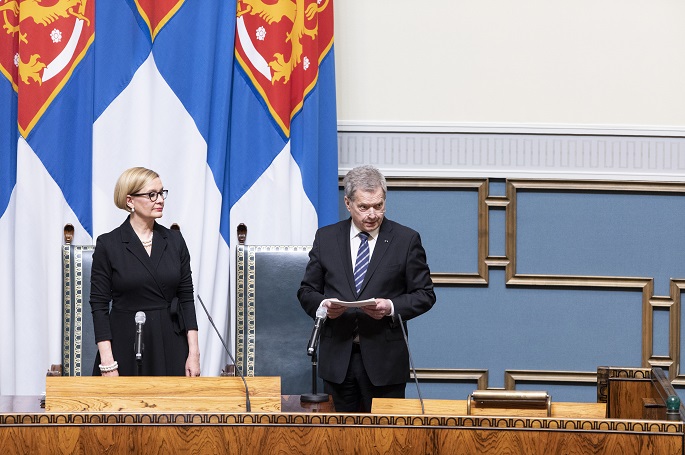Parliament holds its last session
President for more debates on foreign policy
Published : 11 Apr 2019, 02:57
President Sauli Niinistö on Wednesday put emphasis on the necessity for holding more debates on country´s foreign policy.
“The need for debate on foreign policy is, in other words, not limited to the run-up to elections. There is also a need for it after and between elections,” said the President while speaking at the closing session of the outgoing parliament.
The last session of the parliament was held on Wednesday and the parliamentary elections will be held in the country on April 14.
“For my own part, I have engaged in such discussions with parliamentary committees and party leaders throughout this past electoral period. I intend to continue doing so with the incoming Parliament as well,” said the President about the need for the debate on the security policy, according to the written speech of the President sent by his office.
He said that power politics of states has returned, if it ever really went away. And states are not by far the only ones using power. Malicious networks and individuals have new kinds of capabilities and means for harming others.
“In this kind of a world, the good must be steadfast. All over Europe, this reality is now beginning to be understood. Compared to many other European countries, we have at no stage let down our own defence, and this has been our strength. But also our own system has had a whole range of legislative gaps that have left us vulnerable,” Niinistö said, adding that far too little attention has been given to this Parliament's consistent work aiming to fill these gaps. The list of legislative achievements from this electoral period to strengthen our security is a long one.
He also said that changes to the Military Service Act have made it easier to raise the level of our defensive preparedness.
“The act on providing and receiving international assistance has strengthened our decision-making ability on security cooperation. Our capacities for preventing money-laundering and funding of terrorism have improved. National security is now a more important consideration in matters of dual citizenship, land use and property ownership. The acts on civil and military intelligence, which are waiting for final confirmation, will give the authorities significantly better capacities to carry out preventative measures,” he said.
He also highlighted various aspects of different constitutional amendments took place during the tenure of the outgoing parliament.
“The Constitution also lives in time. Many seem to have missed one of its most recent amendments, which relates to the Constitution’s foreign and security policy dimension. It is well known that foreign policy is led by the President of the Republic in cooperation with the Government. But the constitutional amendment that came into force in 2012 gives Parliament itself a decisive role, should the President and the Government come into conflict on significant matters relating to foreign and security policy,” he said.
“Such a conflict will of course be avoided by all means. However, this constitutional amendment gives Parliament an even greater responsibility in foreign and security policy than before. The parliamentary contribution is also strongly visible in processing the Government’s policy reports,” he added.


